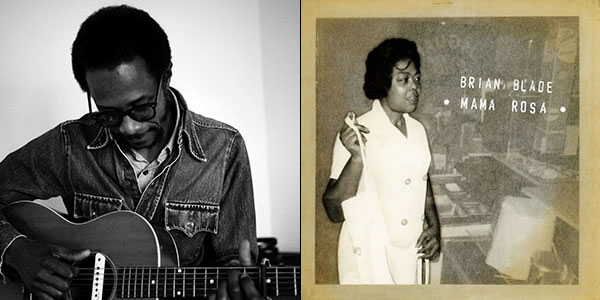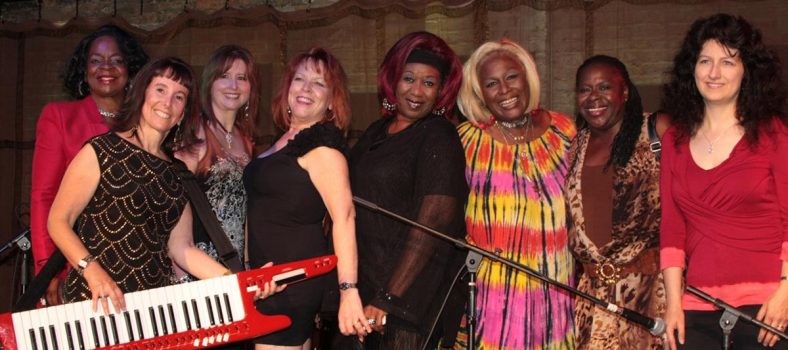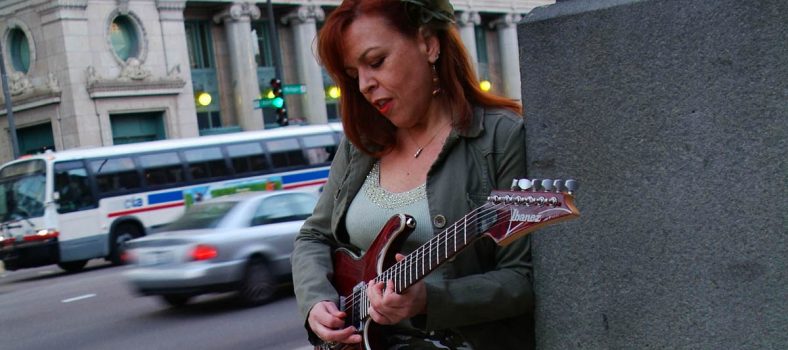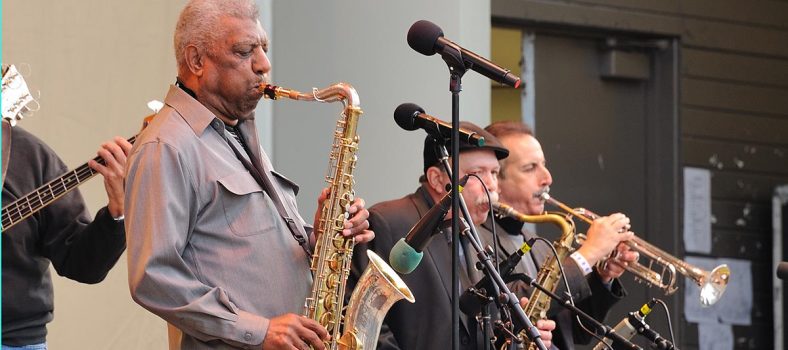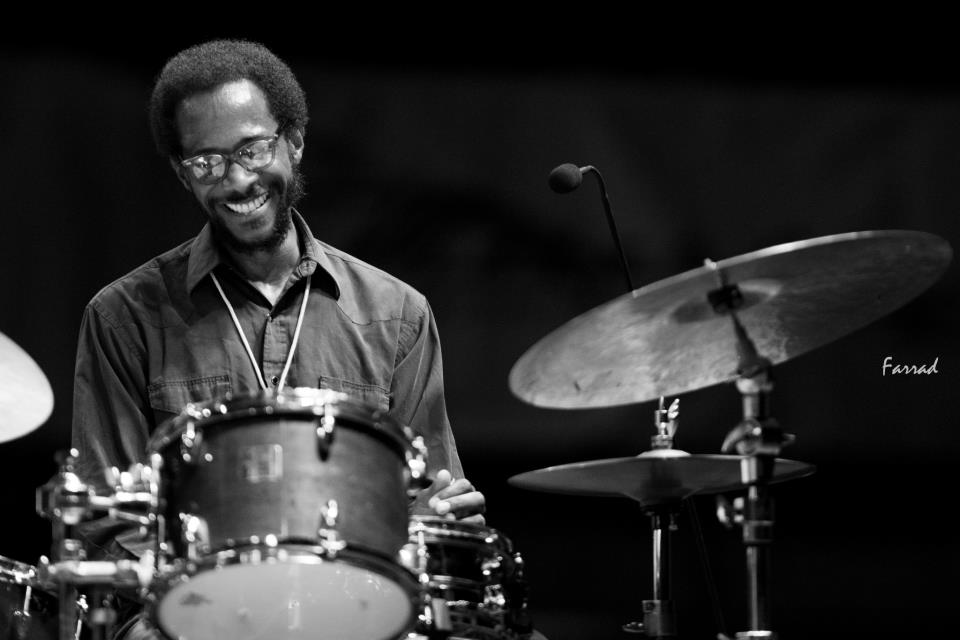 Brian Blade photo by Farrad Ali
Brian Blade photo by Farrad Ali
Gifts are meant to be given away. We all have gifts and once we are aware of them we are to give them back as service to humanity. This is a virtue drummer Brian Blade also believes in. His 2009 album, Mama Rosa speaks of his family, his personal journey in life and is his musical gift. “That record was like my musical diary. I was really content with it existing in the privacy of my room, my little 4-track and it was very personal,” he confided. “It was really dedicated to my grandmother Rosa and written from the perspective of my mother at times, based on memories of home and family and things I’d seen along the way once I left home in my travels. It was really because of my friend Daniel Lanois and his encouragement and hearing some of my diary demos that I saw it through and tried to make a record of it. And I’m really thankful that I did because it’s something about letting it go; releasing something. I feel that the music is this gift that is given to you, you have to then give it back and regardless of what anyone loves or dislikes about it, you have to release it so to speak. Hopefully it touches folks too, and they can relate to it in their own lives. I’m really thankful I have been able to play that music and I’m still writing songs for that Mama Rosa group.”
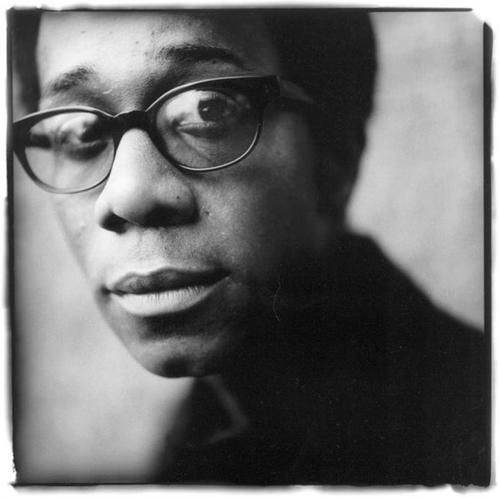 Blade grew up in the church in Shreveport, Louisiana and started playing the violin at age nine. His brother, Brady Blade, Jr., also a drummer, was his inspiration to play and he began taking drum lessons at twelve. He says music was something that just grabbed him. “It (music) was just always a part of life, in a communal way, so it wasn’t a pursuit more so than it was given. It sort of wrapped its arms around me.” At thirteen, Blade began to play the drums in his father’s church after his brother left for college. “My dad turned to me and said, ‘Well it’s your turn, because your brother is going away to college’,” he chuckles. “It was kind of this duty in a way, but also it was a joy being a part of church service and the music and praise of it and that inclusion that I felt. It was great to feel like, ‘ok I have something to do now’.”
Blade grew up in the church in Shreveport, Louisiana and started playing the violin at age nine. His brother, Brady Blade, Jr., also a drummer, was his inspiration to play and he began taking drum lessons at twelve. He says music was something that just grabbed him. “It (music) was just always a part of life, in a communal way, so it wasn’t a pursuit more so than it was given. It sort of wrapped its arms around me.” At thirteen, Blade began to play the drums in his father’s church after his brother left for college. “My dad turned to me and said, ‘Well it’s your turn, because your brother is going away to college’,” he chuckles. “It was kind of this duty in a way, but also it was a joy being a part of church service and the music and praise of it and that inclusion that I felt. It was great to feel like, ‘ok I have something to do now’.”
After high school Blade moved to New Orleans to attend Loyola University where he studied and played under the likes of Ellis Marsalis, John Vidacovich, Bill Huntington, Steve Masakowski, and John Mahoney. “It was a great privilege to be a student of Mr. Marsalis and all of my teachers,” he says. “The reason I moved to New Orleans I truly believe was because of John Vidacovich, Steve Masakowski, Bill Huntington, John Mahoney, Mr. Marsalis and also unknowingly the peers that I would meet that were so advanced and so great. They really helped me to grow quickly just by being around them daily.”
New Orleans, the home of jazz music is also a place with cultural flavor, just like a pot of gumbo. Blade says the city has its own universe with a richness and a rhythm that comes deep from the ground. “People live in that rhythm and feeling. All you have to do is walk out on to the streets and you run in to a parade and there is drumming going by,” he says with a laugh. “It was a greater education just by location alone, then the people that I came in contact with once I was there, they let me in so to speak. They gave me that opportunity, I wasn’t really prepared, but they had a faith and a trust that they knew something was hopefully going to come out of this investment of time on their part.”
Blade knows his purpose and what he is here to do and that is to play music. “I met John Cowherd the first year I moved to New Orleans in 1988 and unknowingly that was the beginning of the Fellowship Band. There are certain times when you feel like you don’t have to ask questions, you feel led and you go and you’re where you’re supposed to be and I really feel that about my time in New Orleans,” he says.
The band’s name Fellowship comes from something Blade wants to pursue daily in life. He says, “Healing an equation; humanity itself and this greater kinship that comes from just being alive. We’re all trying to make our way through life. How it manifested itself musically is really what we’re about, how all of these individuals; John Cowherd, Chris Thomas, Myron Walden and Melvin Butler, we all have a consciousness to try and make that one sound. To become a singular organism phonetically, so everyone really serves the song, serves the moment and submits themselves to the band and that is the embodiment of fellowship for me, it’s knowing that you have a part in something much greater than yourself alone.”
Blade isn’t only a drummer he is a singer/songwriter and a guitar player as showcased on Mama Rosa. When asked if he had to choose one over the over (as if that is possible), he says, “It’s funny, like I said I don’t feel like I’ve chosen any. I just love the music. I love being able to play music for my friends and to play for people. So the opportunities that come for the Fellowship Band or for the Mama Rosa Band, I hope to balance them equally as much as I can.”
The Fellowship Band is a jazz ensemble with foundational inspirations from John Coltrane, Thelonius Monk and Paul Motian, says Blade. “We’re a song band too, with little instrumental landscapes across America for me as well, poetic at times but also very turbulent at times in terms of the freedom we have to improvise in the jazz idiom. It’s hard to describe. The Mama Rosa Band is almost like a psychedelic gospel band. It’s hard to put a name on it all.”
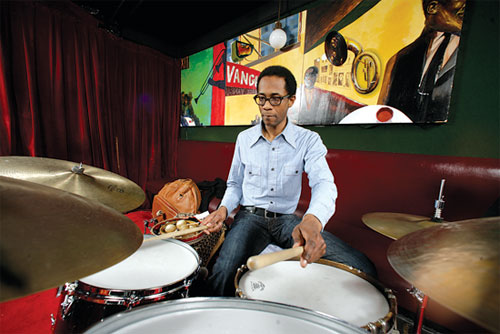
By playing alongside the likes of Herbie Hancock and Wayne Shorter (for the past twelve years), Blade says he’s learned how not to rest on the plateau of what has already been accomplished from Shorter. “As great as Wayne is, the genius of it, the composition, the improvisation and everything about it, he is still reaching, still writing daily and still imagining and shining a light into the unknown. He is still reaching. Outside of getting to know him as a human being, his humor and the heart of the man and his love, my respect and gratitude grows deeper and deeper because he is such a great example. Herbie as well, they just keep digging to reveal; I don’t know how to describe it in words sometimes, what the music can truly communicate. It’s really been an inspiration and I try and walk in that same way if I can, following in their footsteps.”
Brian Blade is a man who lives an inspired life, he is doing what he loves to do and that is to make music and in the process he releases it and gives it back to his audiences and the universe. He says, “Every day I wake up and there’s this renewal, new energy that comes from that alone and hopefully I wake up with a song going around inside of me. It inspires me to keep trying to write and hopefully get better at expressing something at the drums, or lyrically or with the guitar and then I go listen to Elvin Jones, or Tony Williams or Paul Motian on a record and it’s so humbling but then simultaneously inspiring so at that moment I want to think and at the same time I want to go downstairs and get on the drums. That daily spark that comes, it really is an eternal gift.”
By Keli Denise


